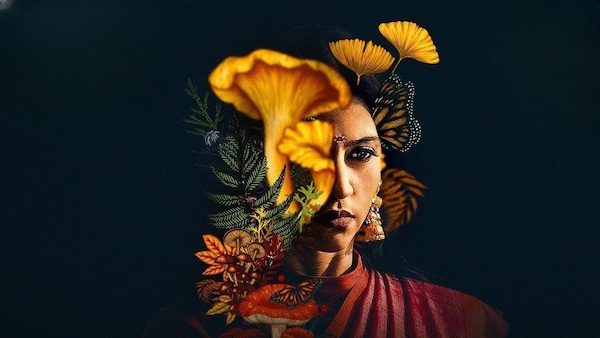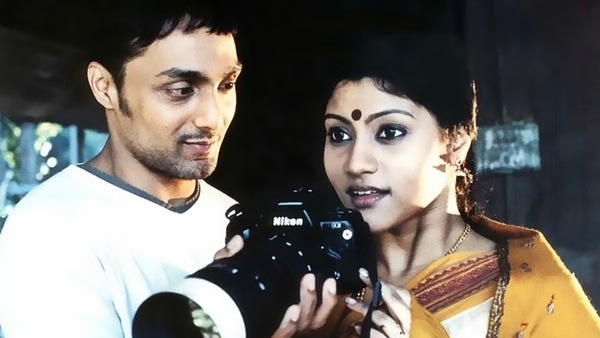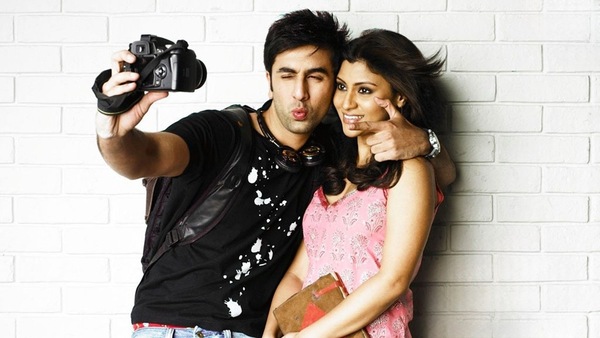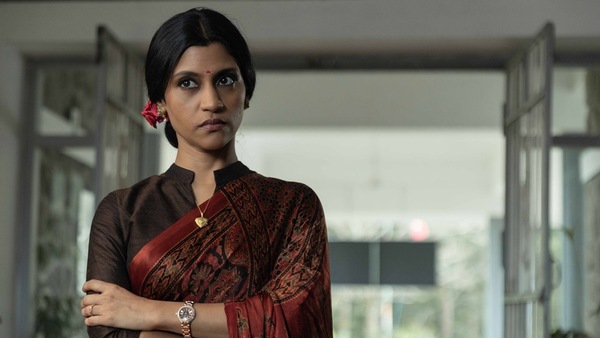Konkona Sen Sharma, How Do We Love Thee? Let Us Count The Ways
Konkona Sen Sharma could be India’s answer to Meryl Streep. Or Greta Gerwig. Or whatever the global equivalent of the goddess-of-performance-and-filmmaking is.

Last Updated: 04.02 PM, Feb 07, 2024
KONKONA SEN SHARMA is everything.
That’s it. That’s the thinkpiece. There’s nothing more to say. She is amazing. She is awesome. This writer has a massive crush on her. This writer would love to work with her and pick her inspiring and creative brain. The end.
***
Now that I’ve gotten that out of my system, let’s delve into why I believe Konkona could be India’s answer to Meryl Streep. Or Greta Gerwig. Or whatever the global equivalent of the goddess-of-performance-and-filmmaking is.
The first thing that comes to mind when I think of Konkona is how each of her characters strikes the delicate note between being an everywoman and possessing extraordinary quirks and features. Whether it’s the nuanced and vulnerable Meenakshi from Mr and Mrs Iyer, the ambitious Madhavi Sharma from Page 3 and Neha from Luck By Chance, the charming Aisha Banerjee from Wake Up Sid, or my absolute favourite — Bharti Mondol from Neeraj Ghaywan’s short film Geeli Pucchi — a character that deserves her own TV series.

If there was ever a way to up this ante, Konkona decided to foray into direction with the delightfully unconventional film A Death In the Gunj: an atmospheric, innately psychological study of human behaviour. Her Lust Stories 2 segment, The Mirror, explored an area most Indian filmmakers would either completely shy away from, or sensationalise. It’s not easy to portray sexual desire and kink in an Indian context, and do so in an observant and mildly humorous way. But Konkona’s assured filmmaking has made a mark of its own. Her directorial voice is seemingly not intended to be inherently feminine, even though that may be the end result. She doesn’t show off the female gaze in her movies, but she teases it. She places it for audiences to savour bit by bit. I can safely say that I am an audience member for life. Whatever Sen Sharma puts out there, I will watch. Good, bad, ugly, monotonous — whatever it is, I am ready to feverishly absorb it.
I can’t decide who I like more: Konkona the actor, or Konkona the director, but her latest TV series, Abhishek Chaubey’s Killer Soup certainly makes a case (if any were necessary) for her acting chops. She plays the sometimes sinister, sometimes enterprising Swati Shetty, who has dreams of owning her own restaurant and won’t stop at anything — and I mean, quite literally, anything — to get what she wants.

In a scene in episode 5, she discusses the logistics of an important plan with her niece. She’s calmly sipping chai while watching her husband and her son play cricket even as she plans world domination. When her niece shows some trepidation about duping the men around them to get to their goal, she nonchalantly says, “Lat kha kha ke aadmi kutta ban jata hai.” You could get offended at it, but in her delivery of that line lies the complexity of the statement. Here’s a problematic woman, capable of brutal crimes and unhinged mania, who knows what she needs to do and is not interested in the morality of her ambitions. She’s interested in winning. You don’t support her insanity, but you understand her drive.
“The way I see it from Swati’s point of view is that she [has] a greater goal, a larger cause, which is her restaurant. She has done everything, raised kids, worked, climbed the social ladder, and now she wants to do this for herself, at a slightly later age, when she is done with the domesticity. Many women can relate to that, doing something for themselves. But life and patriarchy get in the way. In that sense, I myself could relate to her a lot,” Sen Sharma said in a recent interview to DNA.

And I wish other filmmakers who present problematic characters in their movies would understand this nuance and implement it in their writing. (cough*Vanga*cough)
At the core of Konkona's brilliance lies her naturalistic approach to acting. Her performances feel authentic and grounded, transcending the screen to create an emotional resonance with the audience. Like she’s talking directly to you, and it doesn’t matter if you’re watching her in a movie theatre with 200 other people, or by yourself in bed. Whether portraying the complexities of relationships in Wake Up Sid or the subtle nuances of societal expectations (and the subsequent subversion of those) in Geeli Pucchi, Konkona's acting feels like a genuine exploration of the human experience.

But, cinematic brilliance often transcends the screen and influences societal perspectives. In this matter, Konkona is a master opinion shaper. Her choice of roles, advocacy for women's stories, and vocal stance on societal matters showcase her understanding of the cultural impact cinema can have. She not only entertains but also contributes to conversations that shape the collective consciousness.
If this is sounding like an exaggerated love letter to Konkona Sen Sharma’s artistry, that was very much the intention. She is an auteur in the truest sense of the word — be it her directorial voice, her vision, her interviews, her pop-culture legacy. There's truly no-one like her.

 Premium
Premium